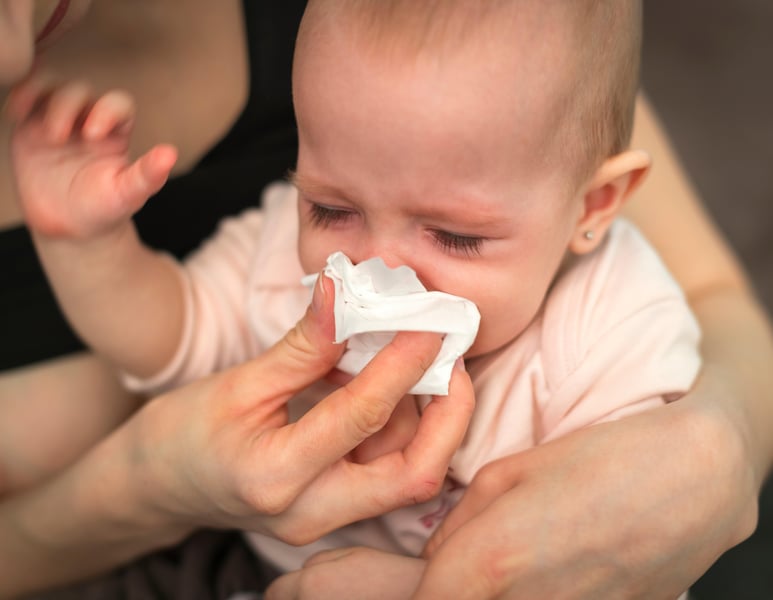Recursos del Paciente
Manténgase sano!
Most Infants Hospitalized With RSV Were Otherwise Healthy, Study Finds
- August 15, 2023
- Cara Murez
- HealthDay Reporter

As experts begin preparing for another season of viruses, they now know that even healthy infants with no underlying health issues are at risk for severe respiratory syncytial virus (RSV).
New research finds that most infants who were admitted last fall to an intensive care unit for RSV were generally healthy before their infection. So, preventative measures -- including a newly approved RSV antibody shot -- may be needed to protect all infants from the illness. It's the leading cause of infant respiratory tract infections and hospitalizations worldwide.
Notably, "most of the infants in our study receiving ICU-level care were young, healthy and born at term,"lead investigator Dr. Natasha Halasa, a professor of pediatrics at Monroe Carell Jr. Children's Hospital at Vanderbilt in Nashville, Tenn., said in a hospital news release. While deaths were rare, she said the findings emphasize the significant illness caused by RSV in young infants.
As many as 80,000 hospitalizations a year in children under 5 are blamed on RSV. About 20% of those youngsters are admitted to the ICU, according to the U.S. Centers for Disease Control and Prevention.
For this study, researchers looked at RSV-related critical illness in 600 infants in 27 states as part of the RSV Pediatric Intensive Care registry.
At the peak of the 2022 RSV season, the median age for infants who needed intensive care was 2.6 months -- meaning half were younger, half were older. Only 28% percent had been born prematurely and 81% had no underlying medical conditions. Twenty-four percent were placed on a ventilator.
Children and infants with certain underlying medical conditions, such as congenital heart disease, neurologic or neurodevelopmental/neuromuscular disorders, chronic lung disease, immunocompromising conditions or prematurity, do have a higher risk for RSV.
Preventing RSV illness is key, of course.
Earlier this month, the CDC recommended that all infants under the age of 8 months be given a new antibody shot, nirsevimab, to help guard against severe respiratory syncytial virus (RSV).
The antibody shot, sold as Beyfortus, has been shown to reduce the risk of both hospitalizations and health care visits for RSV in infants by about 80%, the CDC said in a news release announcing the new recommendation.
"This new RSV immunization provides parents with a powerful tool to protect their children against the threat of RSV,"CDC Director Dr. Mandy Cohen said at the time.
"As we head into respiratory virus season this fall, it's important to use these new tools available to help prevent severe RSV illness," Cohen added in the release. "I encourage parents of infants to talk to their pediatricians about this new immunization and the importance of preventing severe RSV."
When it comes to treatment, only high-risk infants are currently eligible to receive a monoclonal antibody called palivizumab to prevent RSV-associated lower respiratory tract infections (LRTI). But Halasa noted that most infants in the study who wound up in the ICU with severe RSV did not have any underlying medical condition.
Even among those 17 infants who were eligible for palivizumab, only two ended up receiving it, the study found.
Use of both Beyfortus and palivizumab "may protect both high-risk and healthy infants from medically attended RSV-associated LRTI,"Halasa said.
Study findings were published Aug. 15 in JAMA Network Open.
More information
The American Lung Association has more on respiratory syncytial virus (RSV).
SOURCE: Vanderbilt University Medical Center, news release, Aug. 15, 2023

